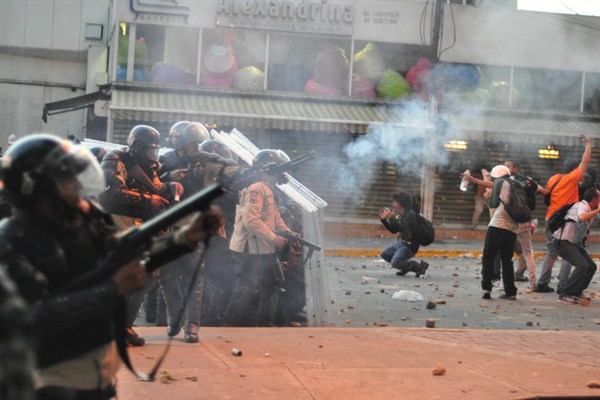With political unrest ongoing in Venezuela, calls for making President Nicolas Maduro’s government pay a price for its harsh handling of the crisis are gaining ground in Washington.
Congress is considering legislation to impose targeted or smart sanctions against officials in the Maduro government responsible for human rights violations against demonstrators during the protests that shook the country in February and March. But the Obama administration is reluctant, hoping to avoid being drawn into the hornet’s nest between the government and the opposition.
Two things shape the administration’s logic. First, the Venezuelan opposition, despite its divisions and limited options for making its voice heard through the media and state institutions, is polling strongly, in part due to widespread dissatisfaction with the country’s economic recession. Second, the Obama administration wants to project a careful, measured approach to dealing with South America’s political left. That means resisting the temptation to punish the Maduro government.

